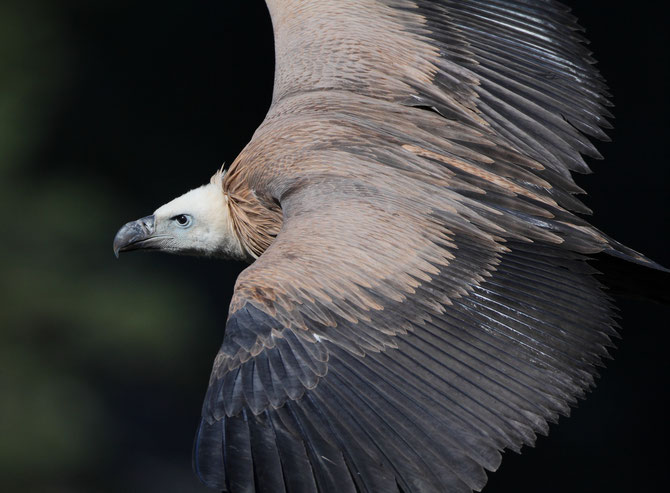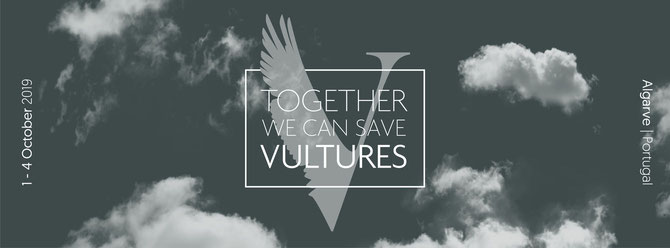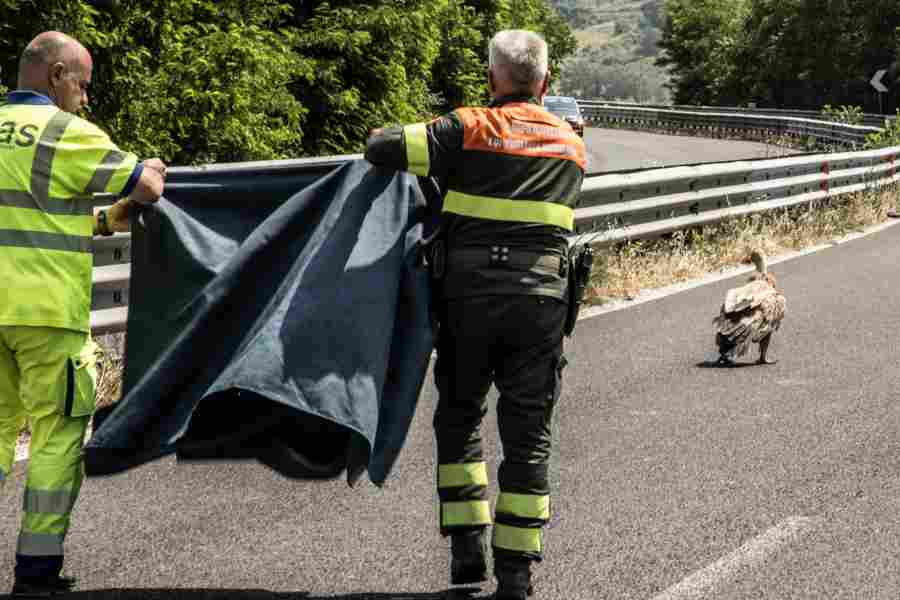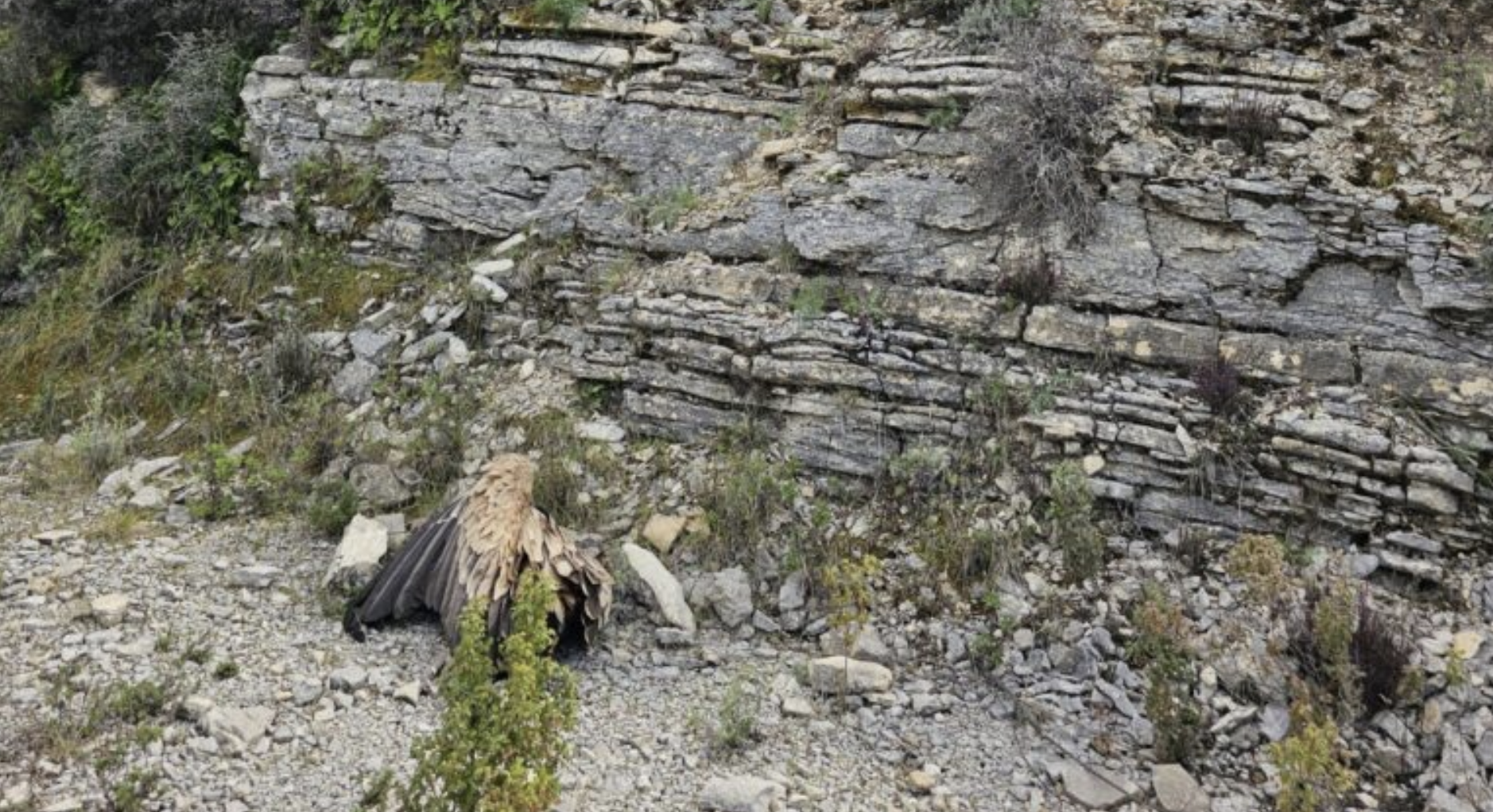
During the first four days in October, we will be bringing together scientists, conservationists and the public in the Algarve, Portugal, for an international congress looking at the latest research and conservation of vultures in Europe and beyond, in our first European Vulture Conference.
In addition to the extensive scientific programme, we will be organising a variety of activities to celebrate vultures. From a live vulture mural, to a photography exhibition and field trips, find out all the activities we are planning.
One of the vulture conservation experts joining us is Dr Orr Spiegel, who will deliver a keynote presentation on vultures foraging movements as a mixed strategy and their dependency on social information.
Contribution to the conference
The need to obtain food is a critical driver of animal movement that shapes individuals’ survival and fitness. When searching for new items or revisiting familiar ones, foragers have to cope with uncertainties regarding food location and quality. Their movements reflect trade-offs between perceived costs (e.g. energy, time and missed opportunities) and expected benefits (energy intake) and the effect of various factors. External factors include environmental conditions and the presence of others that can act as competitors or facilitators. Internal factors are often harder to investigate and include the motivation (e.g. the level of hunger), locomotion capacities and the information forages have. Together, these factors result in space use patterns that vary across time, space, species and individuals.
Here, Dr Orr Spiegel will try to demonstrate how these different factors shape vultures’ movement. He will do so using GPS tracking data of Lappet-faced vultures (LFV) and White-backed vultures (WBV) from Etosha national park, Namibia and of Eurasian Griffon Vultures (EGV) from Israel. Comparing WBV and LFV search efficiency showed that the latter were superior in finding food thanks to differences in morphology (namely visual acuity and wing-loading) and in their social dispersion (different roost arrangements). Identifying feeding events from accelerometer data of EGVs allowed Dr Orr Spiegel and his colleagues to estimate hunger level, suggesting they use a mix strategy of maximizing food intake and minimizing energy expenditure.

Simultaneous tracking of multiple individuals with complementary data on food provided as feeding stations allowed them to demonstrate the importance of EGV’s roosts as information centres. Uninformed individuals could follow informed ones when they revisit carcasses and although they differed in their tendencies to be informed or uninformed, they all occasionally profited from following others.
These findings show a flexible, non-monotonic response of free-ranging wild animals to increasing hunger levels and provide mechanistic explanations for interspecific variation in search efficiency for species using similar resources and foraging modes. They also demonstrate the facilitative effects in foraging vultures across and within species, and emphasize that individuals in declining populations may suffer from reduced foraging efficiency.
Profile
Dr Orr Spiegel is a faculty member at the school of Zoology, Tel Aviv University. He studies behavioural and movement ecology of terrestrial vertebrates, mostly birds. The overarching goal of his studies is to explore the ultimate and proximate factors that shape animal movements, and the consequences of behaviour and space-use patterns for ecology, evolution and conservation. Examples include population dynamics and species coexistence, host-parasite interactions and individual fitness and reintroduction programs. In particular, he is interested in the role of individual differences in shaping these processes.
The European Vulture Conference
1-4 October
Algarve, Portugal

Over 200 people have registered to attend the European Vulture Conference. Registrations are now closed, but we know there are still a few people interested in joining us. For registration requests please contact team LEWIS at 4vultures@teamlewis.com. Requests are subject to validation and will incur an extra cost (Admission+20 euros).
Stay up to date with the latest news and announcements of the conference by following our Facebook Event Page and #Vultures2019 on Twitter, Facebook and LinkedIn.



